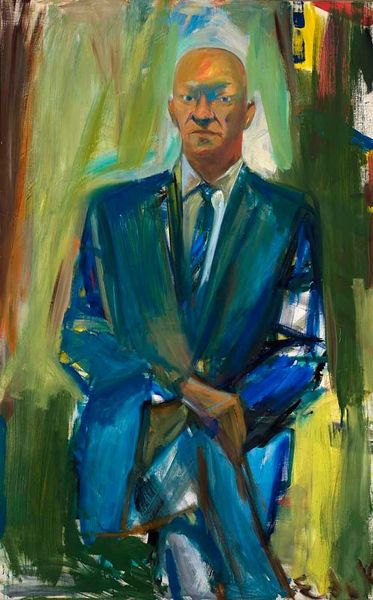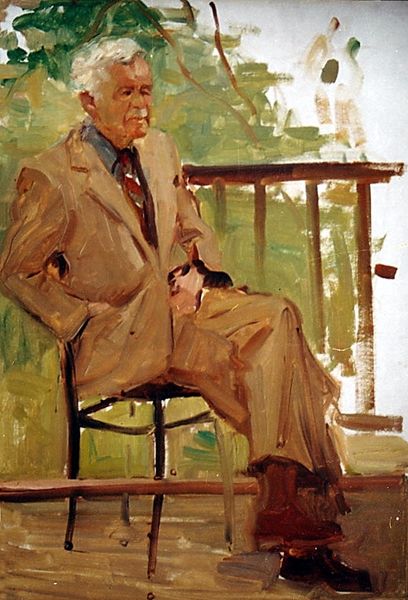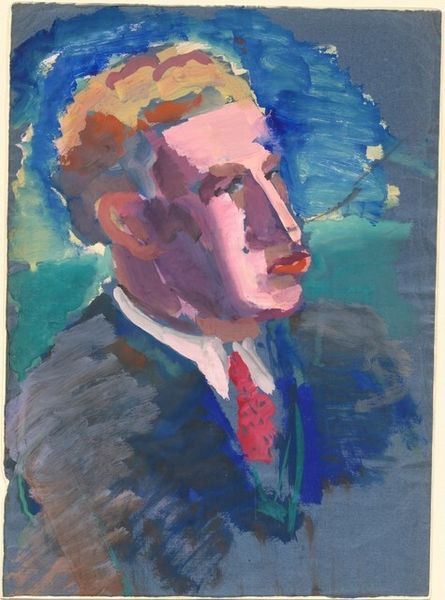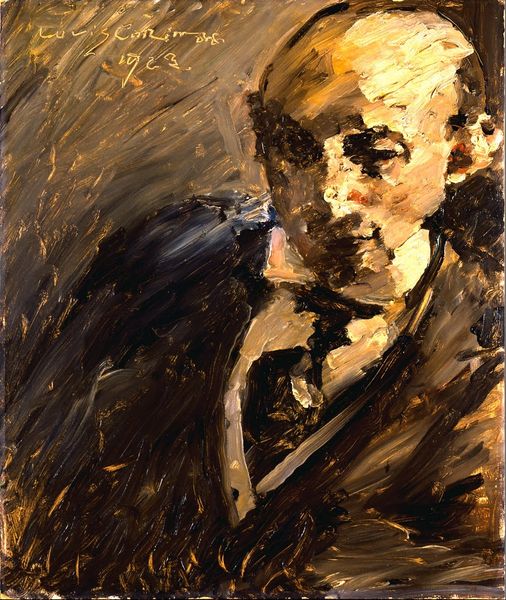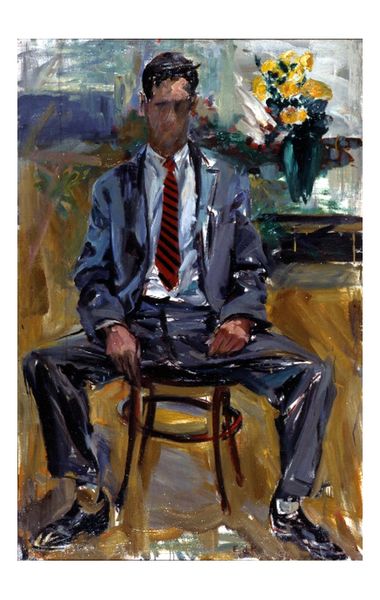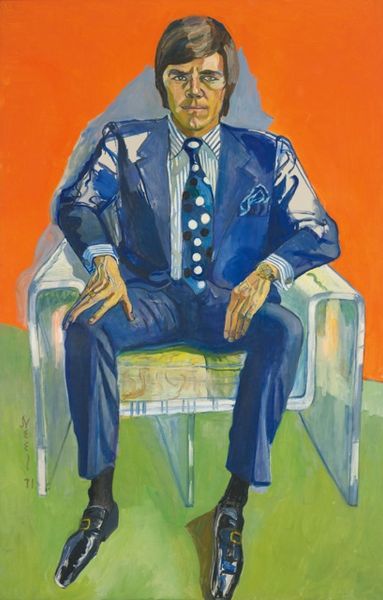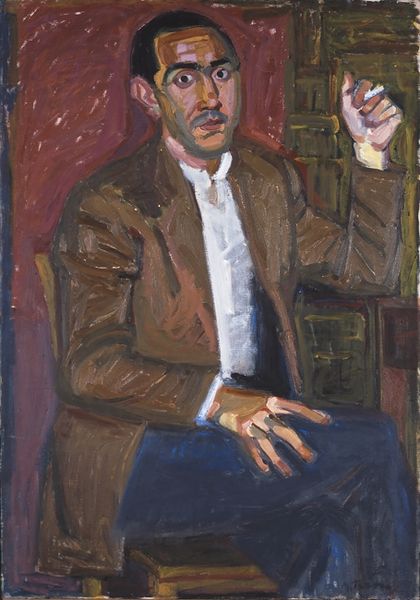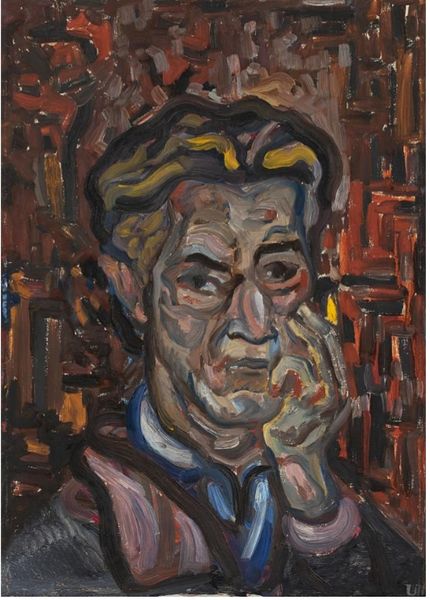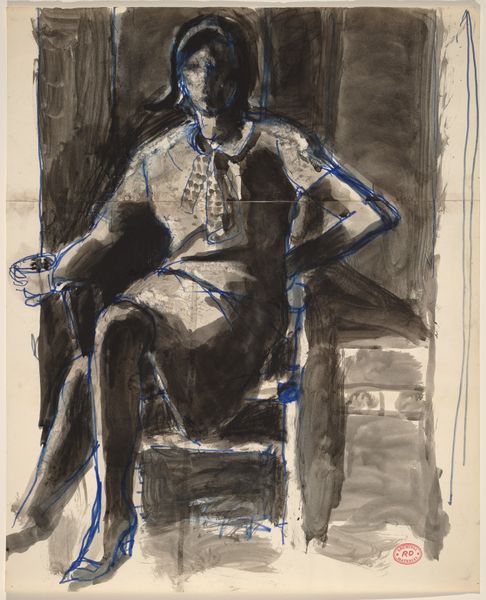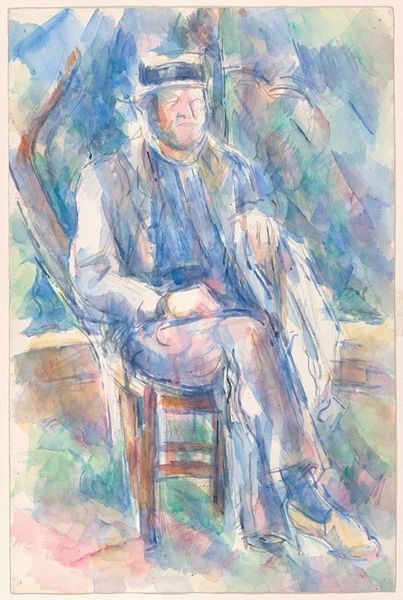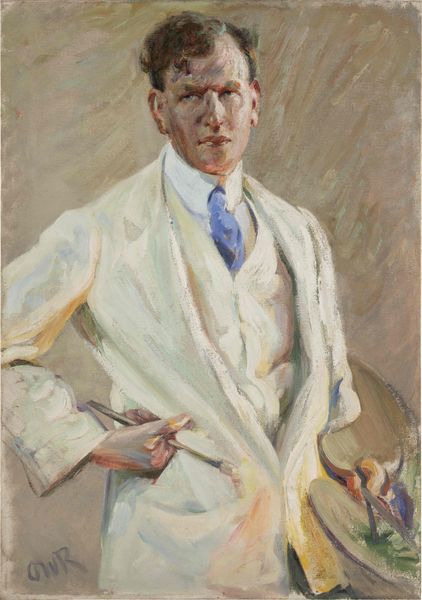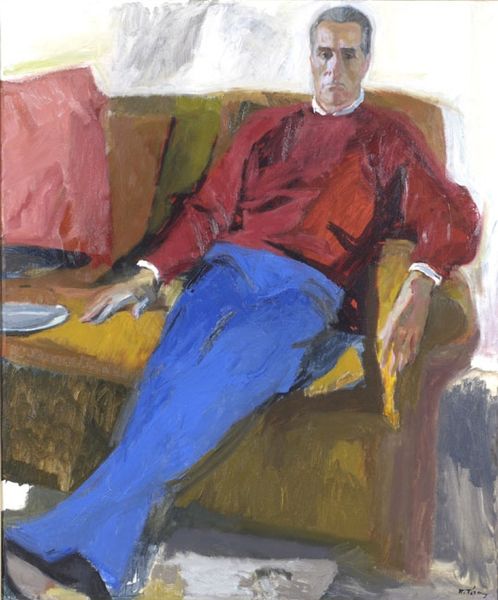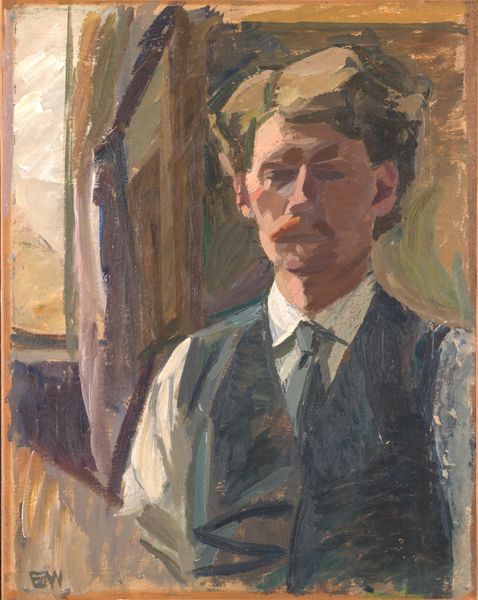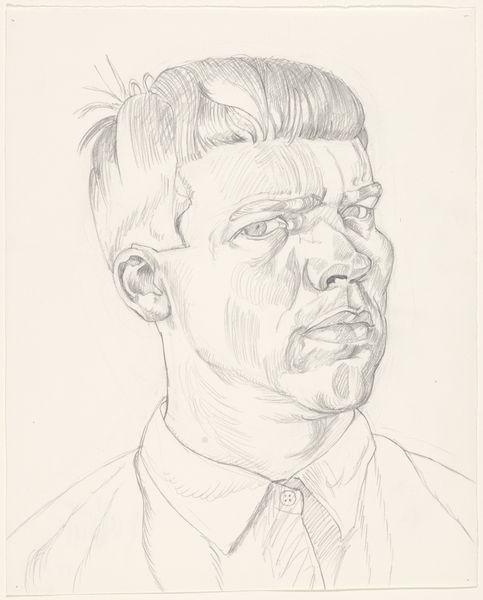
painting, acrylic-paint
#
portrait
#
abstract-expressionism
#
painting
#
acrylic-paint
#
figuration
#
modernism
Copyright: Elaine de Kooning,Fair Use
Curator: Welcome to this gallery. Before us hangs Elaine de Kooning's striking 1962 portrait of John F. Kennedy. It is acrylic on canvas. Editor: The first thing that strikes me is the nervous energy. The rapid brushstrokes, the vibrant, though muted, color palette. It’s… restless, isn't it? Curator: Precisely. The work is an excellent example of abstract expressionist portraiture, de Kooning moves beyond strict representation to capture a more ephemeral essence of her subject. Consider how the loose brushwork denies the viewer’s search for closure. Editor: And what an interesting choice, abstract expressionism. A style typically applied to non-representational subjects, now used to depict one of the most recognizable faces of the 20th century. Can we see it as a democratizing move, stripping away the aura of the presidency? Also, I find it interesting to explore in view of her own social and gendered positions during that era. Curator: Potentially, although I think it may speak more to de Kooning's own interests in capturing what she called the ‘inner person’. Note how the traditional power and solemnity of the portrait genre are subverted here through painterly gesture and the incompleteness of the forms. De Kooning privileges a subjective experience. Editor: Yet, can we separate subjective experience from the social milieu, especially when that experience belongs to a woman artist painting the US President during times of critical shifts for gender equity in US society? Curator: No doubt those broader sociopolitical circumstances exert influence. I see it also in de Kooning's artistic choices. Notice that no single outline defines Kennedy; it is a composite of strokes. Perhaps it reflects the multifaceted nature of both the man and his public image. The canvas is a field of tensions. Editor: Yes, a fascinating depiction of a leader caught in the complexities of his time. Thanks for walking us through this artwork, with me. Curator: Thank you, I’m happy to analyze an artwork through a rigorous focus on its composition, style, and intent with you, and, of course, the intersection of history, art, and identity enrich our interpretations.
Comments
No comments
Be the first to comment and join the conversation on the ultimate creative platform.
